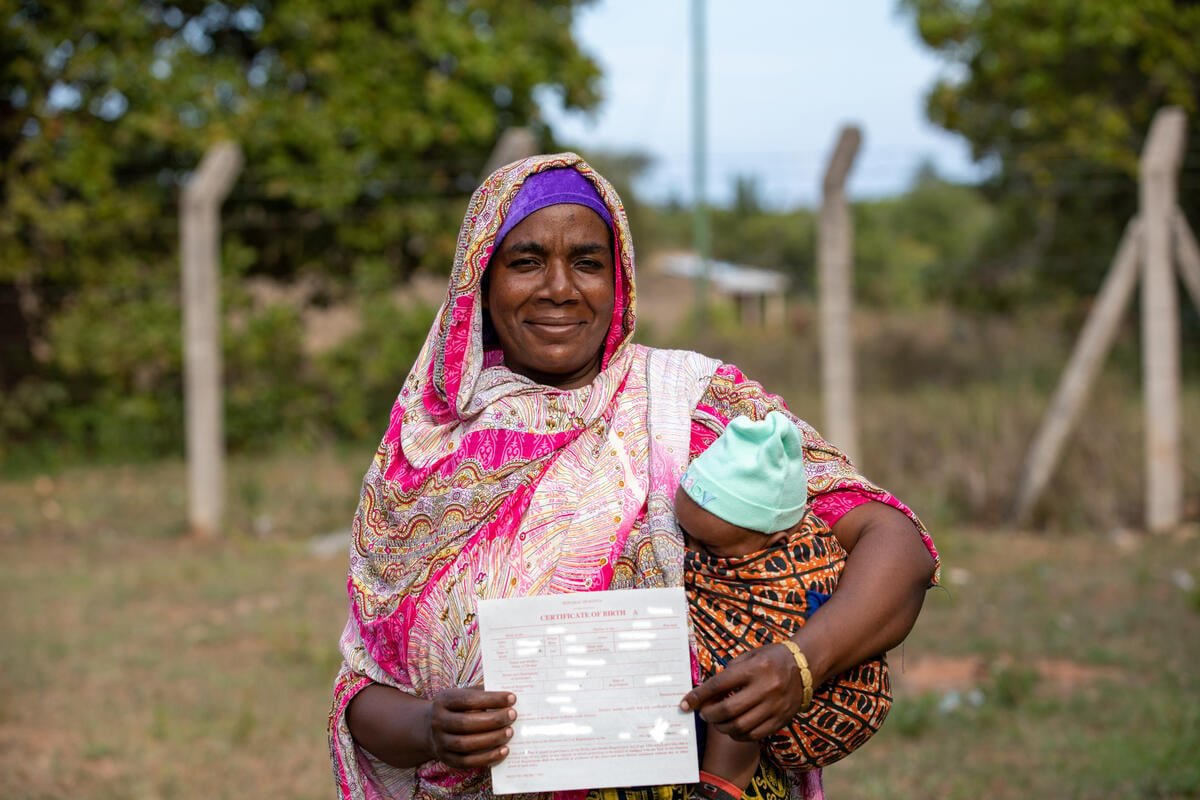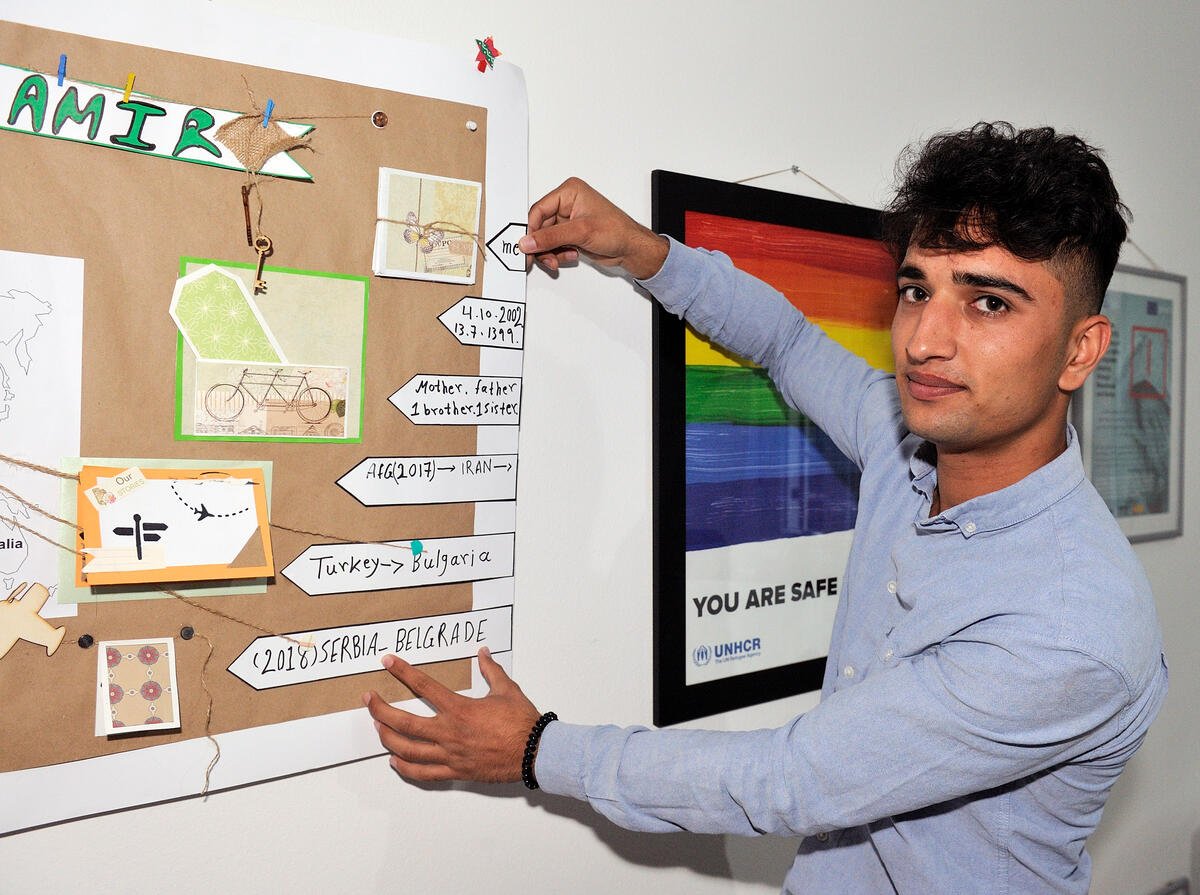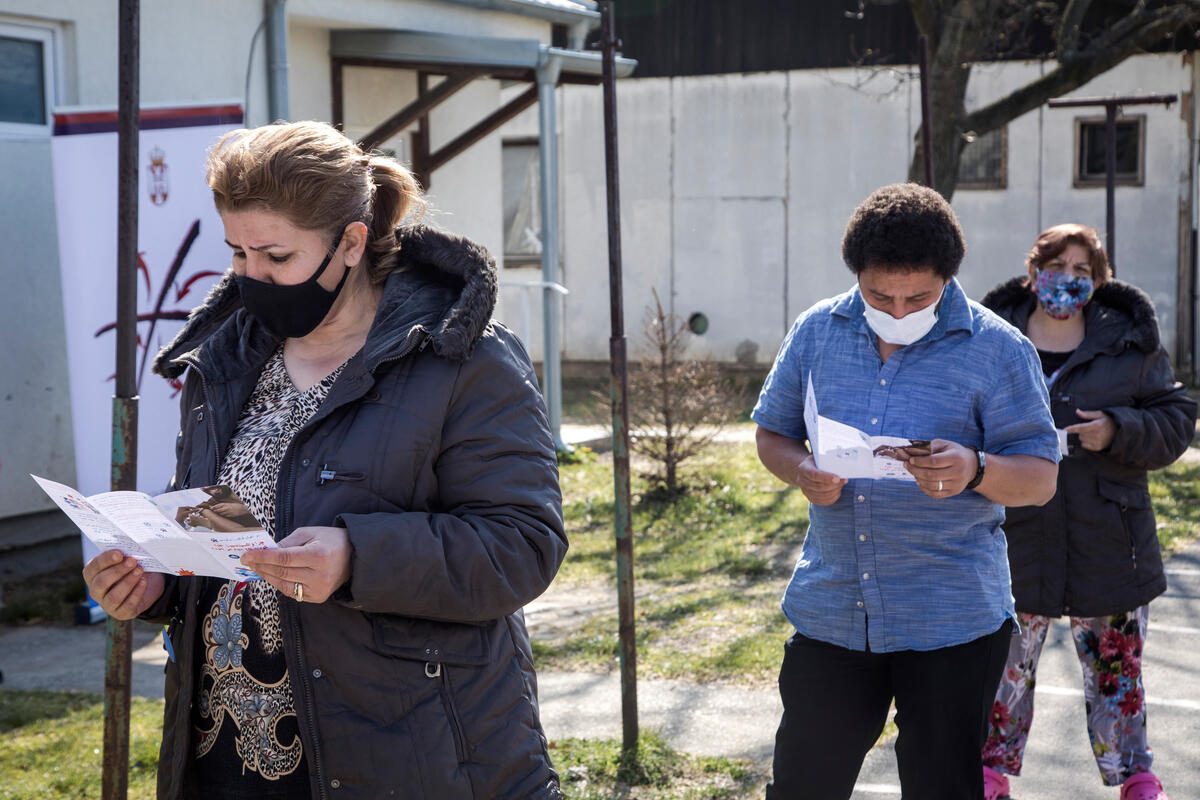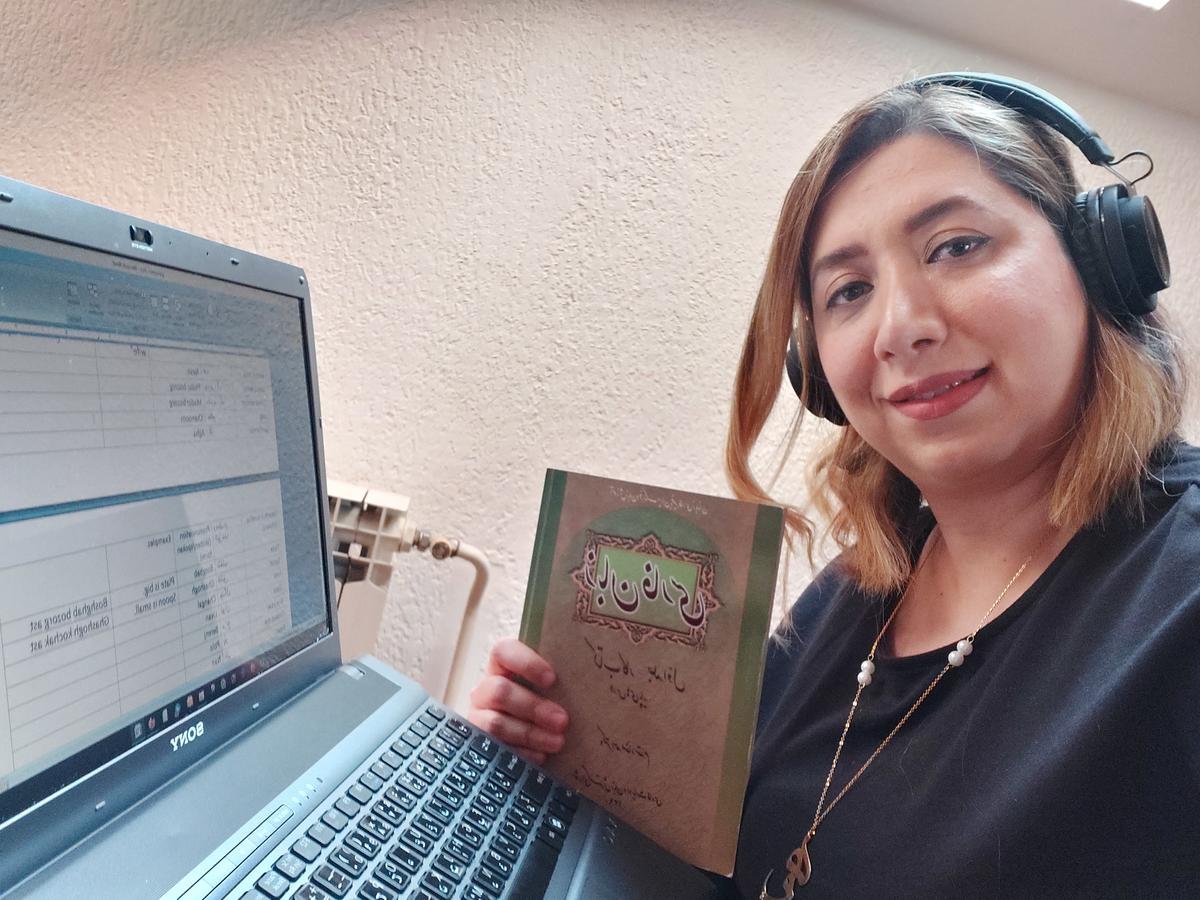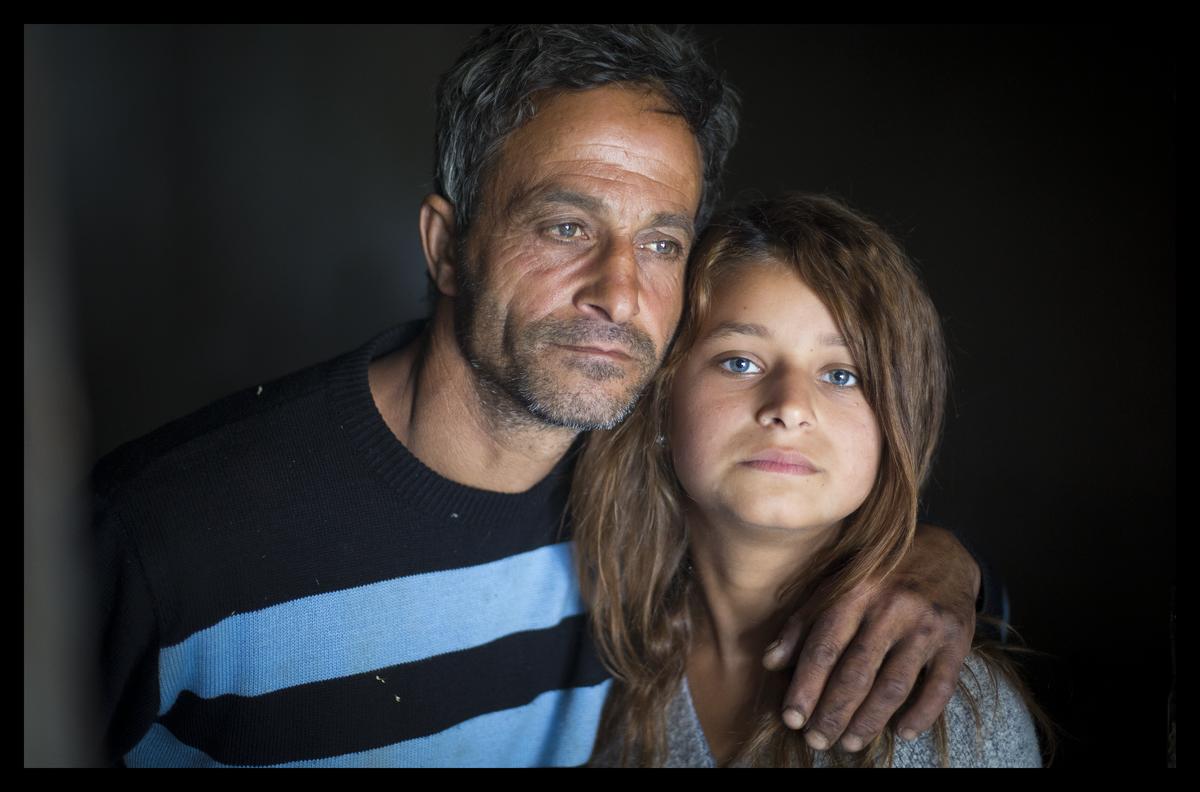Kosovo Crisis Update
Kosovo Crisis Update
Consolidated appeal
On 27 July, the United Nations launched its revised consolidated appeal for the Southeastern Europe Humanitarian Operation, defining the financial needs of 12 U.N. humanitarian agencies and the International Organization for Migration in the former Yugoslavia and Albania through the end of 1999.
The new appeal is a revision of the one issued in December 1998 and includes activities in Bosnia and Herzegovina, Croatia and the Federal Republic of Yugoslavia related to the Dayton peace process, as well as those connected to the Kosovo emergency in those countries and in Albania and the FYR of Macedonia.
The total amount budgeted for these operations for 1999 is $939 million, of which $505 million has been received. The UN agencies are asking for quick contribution of the remaining $434 million to meet humanitarian needs in the region. The full text of the appeal is available on UNHCR's website (www.unhcr.org).
UNHCR special envoy at Brussels Conference
UNHCR's Special Envoy for the Kosovo emergency, Dennis McNamara, who is also the UN Deputy Special Representative for Humanitarian Affairs in Kosovo, is addressing the conference in Brussels convened by the European Union and the World Bank today on Kosovo reconstruction. In his remarks he will stress that initial surveys indicate up to 500,000 Kosovars need proper accommodation before the onset of winter. UNHCR hopes to provide winter-proof tents and materials to enable the homeless to have at least one warm room in their damaged houses before the first snow falls in October. However, UNHCR can only extend very basic, emergency shelter assistance, and its programme is intended to complement longer-term reconstruction to be done by other agencies.
Kosovo: Rapid Village Assessment
On 26 July UNHCR released the "second cut" of its Rapid Village Assessment, carried out with the help of numerous other organizations to provide a snapshot of conditions for return in around 2,000 villages throughout the province. The report uses data collected from 456 war-affected villages, and indicates that 54 percent of the houses in those villages suffered severe damage or complete destruction.
The survey found that 37 percent of the villages studied hosted internally displaced people. The majority of these IDPs (82 percent) cited damage to their own homes as the main reason why they have not returned. Of the villages surveyed, just 13 percent expect to have a harvest this season, but 31 percent reported having dairy cattle in the village. Food availability continued to be problematic, with 50 percent of the people surveyed relying primarily on humanitarian aid.
Only 17 percent of village schools sustained no damage whatsoever, with 32 percent being completely destroyed and the others requiring some degree of repair. A teacher was present in just 35 percent of the villages surveyed.
A functioning health facility was reported in 23 percent of the villages, a health worker was present in 68 percent of the villages and 40 percent of the villages said they had inadequate water supply.
Kosovo: security
Despite the worldwide condemnation of the massacre of 14 Serb farmers in Kosovo over the weekend, attacks on non-Albanians in Kosovo continued. Efforts to protect all of Kosovo's residents have taken on a new urgency.
In Vucitrn, KFOR is guarding the homes of Serbs and Roma - around 70 Serbs are gathered near an Orthodox church. Fewer than 100 Serbs are believed to remain in the town, which once had more than 1,000 Serb inhabitants. Tensions rose on Tuesday when two male Serbs were found dead in their car on the main road between Vucitrn and Pristina.
Also in Mitrovica, there has been heightened tension since the 23 July massacre. Despite the non-signing of the freedom of movement agreement in Mitrovica, about 100 Albanian heads of families gathered at the bridge on Tuesday wanting to return to their homes on the north-west side of town. KFOR advised them to wait until 1 August when the next meeting between the two communities is due to take place. In Prekaze, 10 kilometres south-west of Mitrovica, 15 houses were reported burned earlier this week.
However, there were reports of displaced Serbs returning home to Kosovo. Around 260 Serbs came back from Belgrade and Kraljevo areas on Saturday July 24. Escorted by KFOR troops, the Serbs, in two buses, proceeded to Kosovo Polje. The Yugoslav Red Cross also reported that 200 other Serbs were due to return this week from Serbia proper.
Meanwhile, residents in Srbica organized a demonstration on 26 July against incoming Russian troops. Forming part of the so-called Drenica triangle, Srbica municipality was a KLA stronghold during the conflict.
Returns from neighbouring countries and from abroad
On 26 and 27 July, 3,452 refugees returned to Kosovo from neighbouring countries. A further 2,224 Kosovar refugees returned from abroad, with the assistance of IOM.
On Monday, a total of 985 refugees came back from Germany, Portugal, Romania, Sweden and the United Kingdom. On Tuesday, 1,239 refugees returned, including the first group of 275 from the USA, 312 from Turkey and others from Austria, Belgium, Germany, the Netherlands, Switzerland and Sweden.
In Turkey, UNHCR reports that most of the 17,700 Kosovars who sought refuge there have returned. Best estimates are that returns to-date, both spontaneous and organised, number just under 16,000.
To date around 26,000 Kosovars have returned from abroad, both spontaneously and with the help of UNHCR and IOM.
Serbia
The UNHCR office in Belgrade reports that 132,000 of the estimated 170,000 newly displaced persons from Kosovo have been registered in Serbia (110,000) and in Montenegro (22,000), mostly Serbs and Roma. In addition, 3,000 Croatian and Bosnian Serb refugees who had previously been staying in Kosovo have fled to Serbia.
The situation of many of the refugees and displaced people in Serbia is alarming. Soup kitchens in the Nis region will begin operating again, as most of the refugees and IDPs are without any source of financial support, and the number of requests to be placed in collective accommodation is increasing.
UNHCR staff are finalizing agreements with implementing partners to ensure continuation of assistance programmes through year's end, and extension of many of the programmes - in particular psycho-social support - to include the new displaced from Kosovo, along with the refugees from Croatia and Bosnia and Herzegovina whom UNHCR had been assisting before the Kosovo crisis. The programme of psycho-social support is implemented through the Institute of Mental Health in Belgrade.


